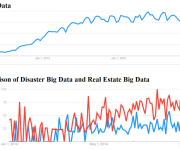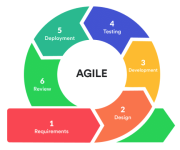Relevance of Big Data

Big data is characterized by three vital aspects, volume, velocity and variety of its generation. As we insinuated earlier, big data can be generated at large volumes, the data is generated from various sources, which may bestow it with a variety formats and depending on type of data and nature of its origin, it may be generated at variable speeds. The data may be generated at an extraordinary rate of speed and hence may require advanced or for that matter state-of-the-art hardware and software components.
Big data has become vital to our existence, in consideration one may take into account the recommendations provided by the e-commerce sites based on our search queries of for that matter analysis of our interests based on an acute analysis of our browser history and other frequent activities.
As one may understand the size of such data may be ever-increasing and here a problem is imposed, how should one approach analysis and execution of such a data without compromising on quality or hampering reliability. To ensure effective management state-of-the-art big data handling software, such as Hadoop are utilized. Hadoop uses simple models of programming that divides the data into clusters that can be further analyzed and hence provides the user with an ease of approach. This data is then executed in two consecutive stages, which are; first the data is converted into a Hadoop Distributed File System (HDFS) and then the data is subjected to a process called Mapreduce. The series of machines running Mapreduce and HDFS together constitute, what are known as clusters. Nodes or the machines that are used to carry out these operations sort the data in a 64mb pieces and spread across the cluster which is then replicated three times. This culminates the storage aspect of the process and then Mapreduce initiates analysis. The required tasks are distributed to every node and when the individual machines complete the tasks, the completed data is collected, mapped and reduced by the process of shuffling and sorting, which makes the analysis of big data easy and fast with no difficulties.
With more and more companies making the transition into the big data market and those that are not making the transition are incorporating and utilizing big data to harness benefits of optimizing corporate efficiency, it is imminent that the gradual exponential growth of big data will result in abundance of new career and revenue generation opportunities. It is vital that one equips themselves with the relevant skill-set and proficiency to enable themselves to capitalize on this situation.
Vaishnavi Agrawal loves pursuing excellence through writing and have a passion for technology. She currently writes for intellipaat, a global training company that provides e-learning and professional certification training.























